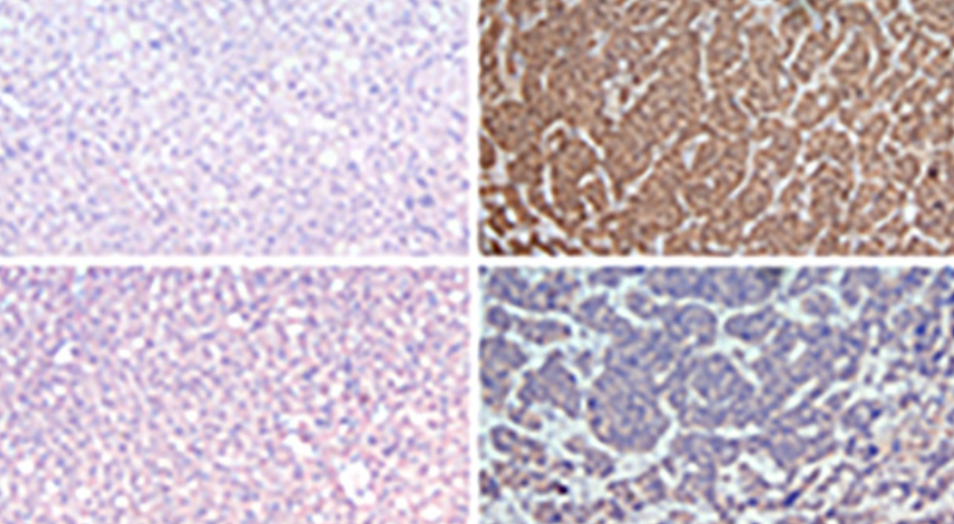Study on the mechanism of liver cancer immune escape mediated by MINDY1 through regulation of PD-L1 ubiquitination level
DOI:
https://doi.org/10.17305/bb.2024.10962Keywords:
MINDY1, PD-L1, ubiquitination, hepatocellular carcinoma, immune escape, mechanismAbstract
The novel deubiquitinase enzyme, motif interacting with ubiquitin-containing novel DUB family-1 (MINDY1), is highly expressed in liver cancer tissues and plays a crucial role in maintaining the stemness of liver cancer cells. Programmed death ligand-1 (PD-L1) is an immunosuppressive molecule overexpressed by tumour cells. The potential role of MINDY1 in inhibiting the stemness of liver cancer cells by deubiquitinating PD-L1 has not yet been reported. To investigate the mechanism by which MINDY1 mediates immune escape in liver cancer through the regulation of PD-L1 ubiquitination, we examined the expression levels of MINDY1 and PD-L1 in liver cancer and adjacent tissues from 50 hepatocellular carcinoma (HCC) patients using protein imprinting and immunohistochemistry. We analyzed the relationship between the expression levels of MINDY1 and PD-L1 in liver cancer tissues and their correlation with the 5-year tumor-free survival rates of patients. Subsequently, MINDY1 expression was knocked down in Huh7 cells using small interfering RNA (siRNA) interference or upregulated through transfection with a MINDY1 overexpression plasmid. The effects of MINDY1 knockdown or overexpression on the proliferation, apoptosis, migration, and invasion of HCC cells, as well as the regulation of PD-L1 binding and ubiquitination, were assessed. The 5-year tumor-free survival rates were significantly lower in both the high MINDY1 expression group and the high PD-L1 expression group (χ2 = 4.919 and 13.158, respectively). A significant difference in survival was observed between the high and low MINDY1 expression groups (χ2= 27.415). MINDY1 was found to directly interact with PD-L1, with MINDY1 gene knockdown promoting PD-L1 ubiquitination and MINDY1 overexpression inhibiting PD-L1 ubiquitination. All comparisons yielded statistically significant results (P < 0.05). In conclusion, MINDY1 inhibits the malignant progression of liver cancer by inhibiting PD-L1 ubiquitination and mediating immune escape.
Citations
Downloads

Downloads
Published
Issue
Section
Categories
License
Copyright (c) 2024 Xingchao Song, Wenjin Li, Chunyan Tian, Xiao Ma, Weibin Yang, Jiahua Zhou

This work is licensed under a Creative Commons Attribution 4.0 International License.









